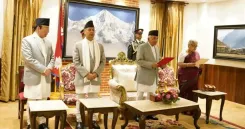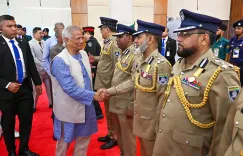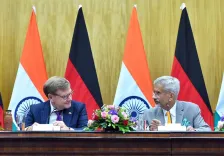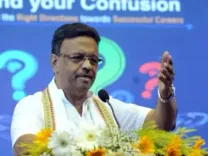What is Causing Unrest in Our Neighborhood?
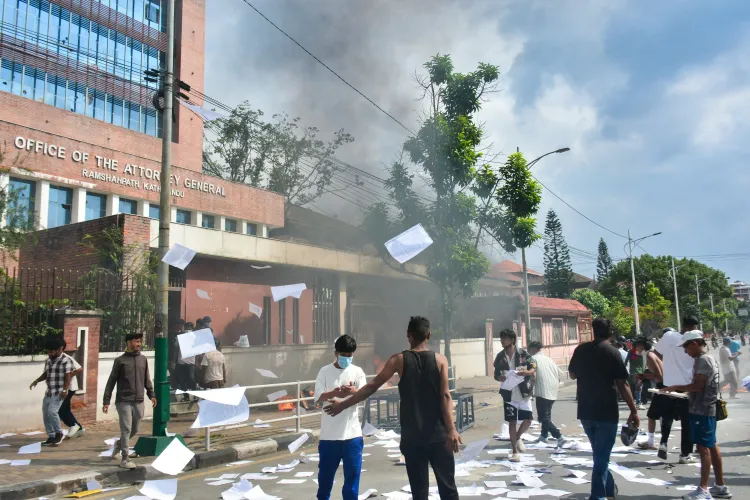
Synopsis
Key Takeaways
- Unrest in Nepal: Protests led to the resignation of PM K.P. Sharma Oli.
- Regional Implications: Instability can affect India's security and influence.
- Vigilance Required: Experts advise caution and preparedness.
- ‘Neighbourhood First’ Policy: India emphasizes support without interference.
- Potential Risks: External factors can complicate the situation.
New Delhi, Sep 13 (NationPress) Since Monday, when the protesting ‘Gen Z’ took to the streets, violence erupted in Nepal, culminating in the resignation of Prime Minister K.P. Sharma Oli. This situation has left New Delhi observing with concern.
“We have seen unrest in Sri Lanka, Bangladesh, and Nepal—each leading to a regime change,” noted Kulbir Krishan, a former member of India’s National Security Advisory Board.
He elaborated, “In Sri Lanka and Nepal, the unrest seems spontaneous. In Sri Lanka, the public’s frustration was directed at Gotabaya Rajapaksa, the eighth President, who resigned on July 22 amid protests. The unrest in the other two nations stemmed from long-standing grievances regarding corruption, nepotism, and misrule.
“Bangladesh’s situation is somewhat distinct, as it involved an elected government, yet the legitimacy of the last election has been under scrutiny. Moreover, there were indications of foreign interference in that case,” Krishan emphasized.
“While Sri Lanka does not appear to have external meddling, it remains too early to determine if similar influences are at play in Nepal,” he added.
Samir Kumar Mitra, a former DIG of the BSF, underscored the importance of caution and vigilance, stating, “This is a critical juncture, and we hope for no further escalation.”
He further indicated, “We must remain prepared for any potential developments while avoiding exacerbating the situation.”
India shares a border exceeding 1,750 km with Nepal. Although security measures have been enhanced, uncertainty lingers.
The Himalayan nation has now appointed an interim Prime Minister as it navigates this tumultuous period, aiming to stabilize and conduct elections soon.
India’s security requires ongoing vigilance, and proactive steps are essential to protect national interests. I trust that those in authority are managing this situation with the necessary care while ensuring we do not interfere in the internal matters of Bangladesh or Nepal,” stated a former member of the National Security Advisory Board (NSAB).
“In terms of India’s security, we must exercise extreme caution and initiate measures to safeguard our interests. I am confident that those in authority are addressing this without encroaching on the internal affairs of either Bangladesh or Nepal,” he reiterated.
A stable Nepal is vital for India’s Himalayan border security and regional influence. We can anticipate that Beijing might exert influence over Kathmandu, making proactive diplomacy from New Delhi a necessary counterbalance.
The recent events in Nepal echo last year’s upheaval in Bangladesh, which resulted in the fall of the Sheikh Hasina government and the establishment of an interim government in Dhaka.
Similar unrest has been observed in India’s eastern and northern borders, following a comparable uprising in the south, where the Sri Lankan government was compelled to resign in 2022 due to public discontent.
To the west, Pakistan remains consistently unstable internally and hostile externally. Additionally, ongoing crises in Myanmar and the Maldives’ pro-China orientation do not bode well for India. A stable neighborhood is always preferable.
Group Captain R.K. Das (Retd) emphasized the need to remain vigilant against those seeking to sow discord and chaos.
“During turbulent times in a neighboring country, we must further reinforce security along our borders. Such scenarios may lead to increased infiltration and arms smuggling in border areas,” he cautioned.
India has consistently adhered to a ‘Neighbourhood First’ policy, providing support while upholding sovereignty.
In times of uncertainty within the neighborhood, New Delhi has closely monitored developments to protect its strategic interests and engaged diplomatically at crucial moments.
The ongoing crisis could prompt a recalibration of relations, potentially leading to long-term security and political challenges for the subcontinent, experts warn.

